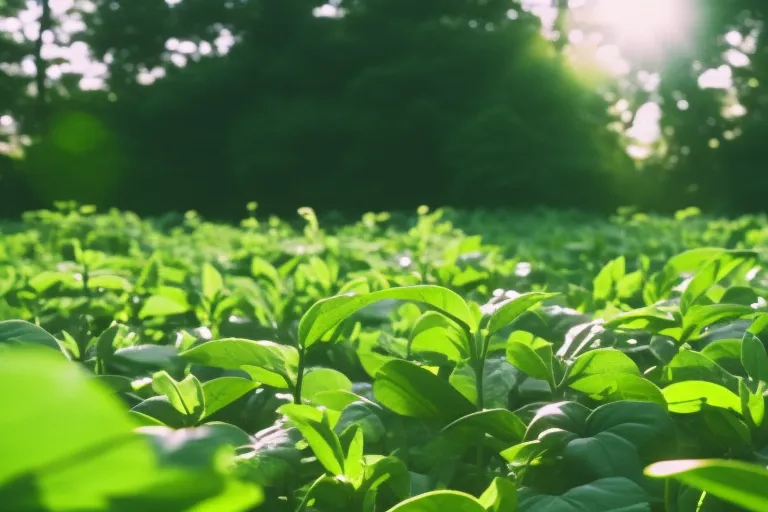Georgia is a country that's steeped in tradition and culture. One of the most intriguing aspects of Georgian culture is the use of herbal medicine. For centuries, Georgians have relied on the healing power of plants to cure a variety of ailments. In this guide, we'll explore the fascinating world of Georgian herbal medicine, from the plants used to the methods of preparation.
The History of Georgian Herbal Medicine
The use of herbs for medicinal purposes has been a part of Georgian culture for thousands of years. In fact, the ancient Georgian language has more than 300 words for different plants and herbs. Georgian herbal medicine has been influenced by various cultures over the years, including Greek, Roman, Persian, and Arab. However, it has maintained its unique identity and is still widely practiced today.
The practice of Georgian herbal medicine is deeply rooted in the country's history and culture. It has been passed down through generations, with each generation adding its own knowledge and experience to the practice. Georgian herbal medicine is a testament to the power of traditional knowledge and the importance of preserving cultural practices.
The Plants Used in Georgian Herbal Medicine
Georgian herbal medicine relies on a wide range of plants, each with its own unique properties. Here are some of the most commonly used plants in Georgian herbal medicine:
- Chamomile – Chamomile is known for its calming properties and is often used to treat anxiety and insomnia.
- Mint – Mint is used to treat digestive issues, including bloating and indigestion.
- St. John's Wort – St. John's Wort is used to treat depression and anxiety.
- Thyme – Thyme is used to treat respiratory issues, including coughs and bronchitis.
- Rosehip – Rosehip is high in vitamin C and is used to boost the immune system.
- Nettle – Nettle is used to treat allergies and inflammation.
- Lemon Balm – Lemon balm is used to treat anxiety and insomnia.
These plants are often used in combination with one another to create powerful remedies. For example, a tea made with chamomile, mint, and lemon balm can be a potent remedy for anxiety and insomnia.
Methods of Preparation
There are several methods of preparing herbal remedies in Georgian herbal medicine. Here are some of the most common methods:
- Infusion – An infusion is made by steeping the herb in hot water for several minutes. This is the most common method of preparation for teas.
- Decoction – A decoction is made by boiling the herb in water for several minutes. This method is used for tougher plant materials, such as roots and bark.
- Tincture – A tincture is made by soaking the herb in alcohol for several weeks. This method is used to extract the active compounds from the plant.
- Ointment – An ointment is made by mixing the herb with a base, such as beeswax or coconut oil. This method is used for topical applications.
Each method of preparation has its own unique benefits and is used for different types of remedies. For example, an infusion is often used for teas, while a decoction is used for remedies that require a stronger concentration of the herb.
Georgian Herbal Medicine in Practice
Georgian herbal medicine is still widely practiced today, both in traditional settings and in modern medicine. Many Georgians have a deep respect for the power of plants and believe that they can be just as effective as modern medicine. In fact, many doctors in Georgia will prescribe herbal remedies alongside traditional medicine.
One of the most interesting aspects of Georgian herbal medicine is the role of the healer. In Georgian culture, the healer is seen as a respected and important member of the community. Healers are often consulted for a variety of ailments, and their knowledge and experience are highly valued.
Georgian herbal medicine is also deeply connected to the country's cuisine. Many of the herbs used in Georgian herbal medicine are also used in traditional Georgian dishes. For example, tarragon is a common herb used in Georgian cuisine, and it is also used to treat digestive issues.
Conclusion
Georgian herbal medicine is a fascinating and complex system of healing that has been passed down through generations. Its reliance on plants and natural remedies is a testament to the power of nature and the importance of traditional knowledge. Whether you're interested in trying out some herbal remedies for yourself or simply want to learn more about this ancient practice, Georgian herbal medicine is definitely worth exploring.
As more people begin to turn to natural remedies and traditional knowledge, Georgian herbal medicine is poised to become even more popular in the years to come. Its rich history, unique culture, and powerful remedies make it a valuable addition to the world of alternative medicine.
